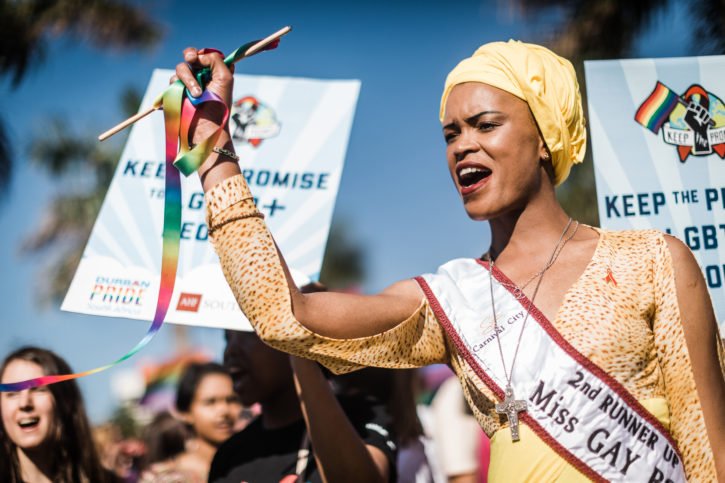Gay couple Phillip Lühl and his partner, Guillermo Delgado are being denied the right to retrieve their surrogate twin daughters from Namibia where they were conceived. 38-year-old, Phillip Lühl is a university lecturer and Namibian citizen that has been prevented from securing his twin babies by the Namibian government even though the babies’ birth certificates has the gay couple’s names on their official documents.
The Namibian court is requesting that the gay couple show genetic evidence that either adults are the biological father before they can travel with their daughters.
This is a huge obstacle for Lühl and Delgado because their daughters were produced through surrogacy — an agreement made between a woman and another person who is asking for the woman to bear the child through a legal arrangement. Surrogacies are becoming a popular route for mothers who have trouble conceiving and for gay couples who are looking to have a child but don’t want to adopt.
A surrogacy is a personal way for gay couples to have hybrid-biological children where one of the partner’s DNA can be used to help conceive the baby with the surrogate mother. The entire surrogate process costs between $90,000 – $130,000.
In Namibia, relationships between the same sex is not allowed according to the country’s law, but the law isn’t enforced strongly. Although the law isn’t upheld, there still is a palpable sense of cultural homophobia that reveals itself in cases similar to Philip Lühl and Guillermo Delgado. Namibia’s government will not release the twin daughters and their minister told the court that they do “not agree to a request to issue the twins Namibian travel documents, because their entitlement to Namibian citizenship by descent had not been determined.”
This is another legal way of preventing LGBTQ+ individuals the right to live their lives as liberated as their heterosexual peers. Through Namibia’s history and its neighboring countries, South Africa became the first country to police the discrimination against sexual orientation in 1996. Although, this is a historical feat, the sentiments are not carried over to Namibia that has been withholding these surrogate babies for a few months now.
//www.instagram.com/embed.js
Protests in Namibia have broken out in response to freeing Philip Lühl’s daughters, Paula and Maya. Their daughters have become symbolic to the overall movement towards allowing LGBTQ+ people to live just as freely as the other citizens in Namibia. South Africa has been promoting inclusivity for a couple of decades now as its sanctioned itself from the other discriminatory behaviors that still exist in other African countries.
The number of street protests that occurred in March ultimately shows that there still needs to be more conversations held around gay couples’ and their rights to have children especially in foreign countries.
